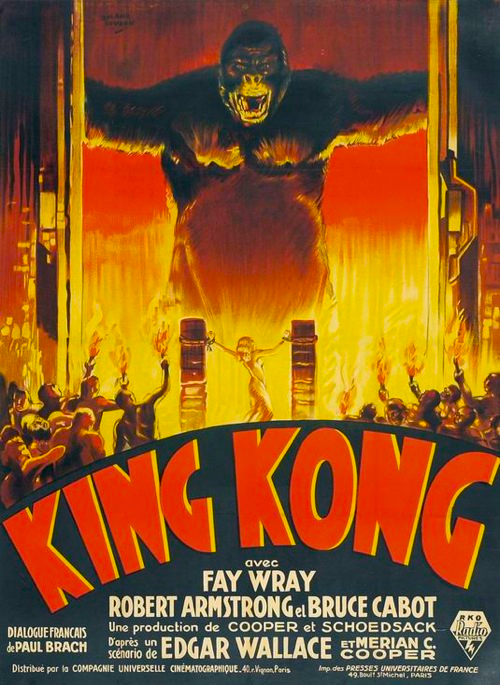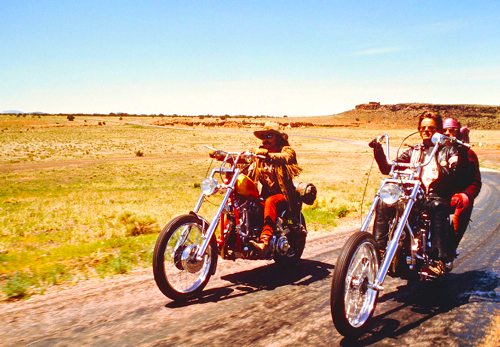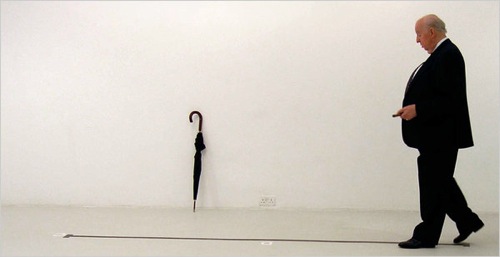 By Jason Apuzzo. • The original King Kong is coming to Blu-ray. The ‘Heat Vision’ blog at Hollywood Reporter says that Kong will make its Blu-ray debut Sept. 28th. Warner Brothers is releasing the disk, and it will essentially be a re-issue of the two-disc DVD special edition put out in 2005 that coincided with Peter Jackson’s remake. This new Blu-ray edition will come with a 32-page booklet written by film historian Rudy Behlmer that will also feature rare photographs. Behlmer himself actually interviewed Kong‘s director, the great Merian C. Cooper, back in the day. I thought that two-disc edition from 2005 was extraordinary – especially the very detailed documentaries done on the making of this landmark film. Kong was an entirely revolutionary film that changed not only motion picture visual effects, but also the development of motion picture sound. I’m very much looking forward to this disk. You can buy King Kong on DVD in the LFM Store below, and you can also pre-order the Blu-ray.
By Jason Apuzzo. • The original King Kong is coming to Blu-ray. The ‘Heat Vision’ blog at Hollywood Reporter says that Kong will make its Blu-ray debut Sept. 28th. Warner Brothers is releasing the disk, and it will essentially be a re-issue of the two-disc DVD special edition put out in 2005 that coincided with Peter Jackson’s remake. This new Blu-ray edition will come with a 32-page booklet written by film historian Rudy Behlmer that will also feature rare photographs. Behlmer himself actually interviewed Kong‘s director, the great Merian C. Cooper, back in the day. I thought that two-disc edition from 2005 was extraordinary – especially the very detailed documentaries done on the making of this landmark film. Kong was an entirely revolutionary film that changed not only motion picture visual effects, but also the development of motion picture sound. I’m very much looking forward to this disk. You can buy King Kong on DVD in the LFM Store below, and you can also pre-order the Blu-ray.
• Capone over at Aint It Cool News as seen the new, restored version of Fritz Lang’s Metropolis (currently billed as ‘The Complete Metropolis’). You can see what he has to say about it here. The film will be embarking on a nationwide tour before hitting DVD in November. Some years back I wrote an article about Metropolis for the journal Neurosurgery, which you can read here. Metropolis is easily one of the most important films in the history of cinema, and its influence can be felt all the way down to the cinema of today. [Even projects like the recent indie feature Metropia – about a near-future urban dystopia – are impossible to imagine without Lang’s earlier film.] Of all the forthcoming DVDs for this year, Metropolis ranks right at the top of my ‘to buy’ list …
• Turner Classic Movies will be showing several Dennis Hopper films this Tuesday June 8th, in honor of the late actor-director. The selections will include: The Sons of Katie Elder, True Grit, Rebel Without a Cause, Easy Rider and Night Tide. Visit the TCM website for further details. If you miss the screenings, we’ve got these films available in the LFM Store above.

• In related news, there’s a rumor circulating (see here at The Criterion Cast) that Criterion may be putting out a special ‘New Hollywood’ DVD box set, to include Dennis Hopper’s Easy Rider, among other classics from that period. Follow the link for more about that rumor. Antonioni’s Red Desert also just came out on Blu-ray from Criterion this week. It’s available in the LFM Store above.
• Kimberly Lindbergs over at TCM’s Movie Morlocks blog has a great review up right now of the Ishiro Honda classic, Dogora (1964) – a film which features a giant jellyfish from space with an appetite for diamonds, a giant tentacle attack on Tokyo, and a sexy Japanese femme fatale. How could you ask for more? Dagora is available (in ‘Tohoscope’!) in the LFM Store above.
• Excerpts from the forthcoming book on the Liz Taylor/Richard Burton romance, Furious Love, will soon be appearing in the July issue of Vanity Fair. For more details, click on the link. Liz and Dick probably are the all-time screen couple, and were personal favorites of mine growing up. As a side note, I’ve grown tired over the years of hearing what a ‘disaster’ Cleopatra was – their work on that film being, of course, the catalyst for their relationship. Cleopatra is actually a magnificent and literate film, arguably the last large-scale epic (other than perhaps Titanic) Hollywood has ever done centered around a woman. If Liz is a bit strident in the film, one never gets the sense that the role is to big for her – arguably it was too small. In any case, rumors of Cleopatra being a ‘financial disaster’ are as ridiculous now as they were back in 1963. In today’s dollars, Cleopatra would’ve grossed $534 million at the domestic box office (i.e., roughly what The Dark Knight made), making it a strong hit for Fox – even when factoring in costs. In any case, if you’re a fan of Liz Taylor or Richard Burton, feel free to pre-order Furious Love in the LFM Store above.

• Finally, one classic film related project to avoid is a new pseudo-documentary on Alfred Hitchcock called Double Take. Double Take, directed by Belgian filmmaker Johan Grimonprez, essentially treats Alfred Hitchcock and his films as hieroglyphs of the Cold War era, an era ostensibly marked by paranoia and an existential uncanniness echoed in Hitchcock’s thematics of ‘doubling’ (one thinks here of Strangers on a Train, North by Northwest, Vertigo, etc.). The film intersperses clips of Hitchcock from his television series with archival Cold War footage and staged interviews with Hitchcock impersonator Ron Burrage.
But as film critic and LFM contributor Joe Bendel writes in his review of the film, “[w]hile there is an ostensible storyline involving Hitchcock’s encounter with his doppelganger, the film is more concerned with scoring revisionist points against easy targets from American Cold War history, like Richard Nixon.” Apparently the film glibly ‘samples’ or ‘remixes’ footage of a body falling from a building in a manner highly evocative of the 9-11 attacks. Do we really need this sort of thing, just to understand Hitchcock? You can read more about this film in The New York Times, but even more recommended is LFM contributor Joe Bendel’s review.
And that’s this week’s Classic Movie Update …
That is incredible that they found the lost footage from “Metropolis.” I wish there was some way I could see the complete version on the big screen. As for Liz and Dick, they were a great screen couple. We definitely do not have their like today. And what kind of man today would be willing to spend all his money on extravagant jewelry for his beloved the way Dick did on Liz? That was quite an era.
Johan Grimonprez, essentially treats Alfred Hitchcock and his films as hieroglyphs of the Cold War era
IOWs, it’s more revisionist post modern trash.
One thing for sure, future film critics and historians won’t have problem with deconstructing the films of this era – the product of safely spoiled post modernists – competitively searching for a creative break with the past by attacking the society that fed and nurtured them. It’s well known that food tastes its strongest just before it rots. A principle embodied in modern cinema.